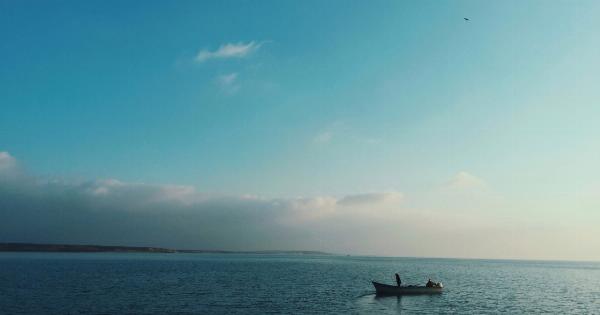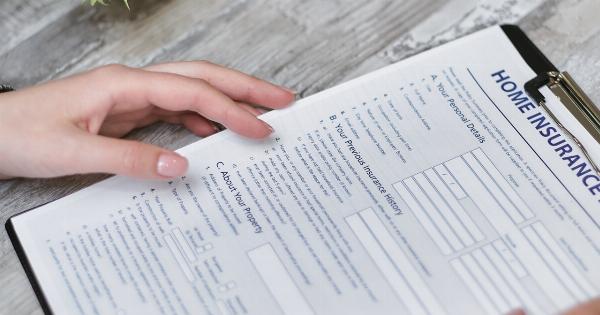Boats are not only a mode of transport but also a means of leisure and adventure. However, with all these benefits come various risks, including physical damage to the vessel and cargo, injuries to the crew and third-party liabilities.
That’s why insurance policies are necessary to protect the investment made in the boat and ensure financial security from the risks associated with owning and operating a boat. In this article, we will discuss the various types of insurance policies available for boats and why they are essential.
Types of Boat Insurance
Boat insurance policies can be divided into two primary categories based on the type of coverage they provide.
First, there is Liability Insurance, which covers the financial loss incurred if your boat damages someone else’s property or causes bodily harm to another person. Second, there is Hull Insurance, which pays for the damage to your vessel. Here are the details of both types of insurance policies:.
Liability Insurance
Liability insurance provides coverage for third-party damages or injuries that are caused by your boat. It comes into play if you damage someone else’s boat, dock, or any other property while operating your vessel.
It also covers any injuries sustained by another person due to your boat’s operation. Liability insurance can provide coverage for various situations, including:.
- Collisions with other boats or objects such as rocks or buoys
- Damage to docks, piers, or other watercraft
- Injuries to other boaters or swimmers who are involved in an accident with your vessel
Most boat insurance policies provide a limit on how much they will pay for bodily injuries and property damage. Liability insurance is critical because it can protect you from financial ruin if someone were to sue you for damages or medical expenses.
Moreover, it is mandatory in most states for any boat owner who operates on public waterways.
Hull Insurance
Hull insurance, also known as boat damage insurance, covers damage to your vessel, whether in the water or onshore. This insurance policy provides protection for a broad range of risks, including:.
- Damage from fire, lightning, or explosion
- Damage from collisions or capsizing
- Theft or vandalism
- Natural disasters, such as hurricanes or tornadoes
Hull insurance policies typically have a deductible, which is the amount you will pay out of pocket before the policy kicks in. The cost of hull insurance varies depending on the type of boat, its age, and the coverage limit you choose.
Additional Coverage Options
In addition to liability and hull insurance, boat owners can also purchase additional coverage options to protect themselves against specific risks. Some of the most common additional coverage options include:.
- Personal Effects Coverage: This policy provides coverage for your personal items, such as clothes, electronics, and fishing equipment on board.
- Uninsured Boater Coverage: This insurance policy pays for any injuries or damage that occur while you are operating your boat, and the other operator or vessel’s insurance coverage is inadequate or non-existent.
- Emergency Assistance and Towing Coverage: This policy reimburses you for the expenses incurred in case you need to hire a professional towing service or require emergency assistance while on the water.
- Wreck Removal Coverage: It provides financial protection for the expenses incurred to remove the boat in case it sinks or becomes stranded.
Factors That Affect Boat Insurance Premiums
The cost of boat insurance premiums varies based on several factors. Some of the most common factors are listed below:.
- Boat Value: The higher the value of your vessel, the higher the insurance premium will be.
- Boat Age: The newness or age of your boat also plays a role in determining the policy’s cost.
- Boat Type: Different types of boats have different inherent risks, and varying levels of experience are required to operate them. For example, a high-performance speedboat poses more risk of accidents than a sailboat, which affects the insurance cost.
- Boating History: Your boating history plays a crucial role in determining your insurance premium. A clean record of accidents and damages lowers your premium, while a history of accidents and claims can increase your costs.
- Boat Usage: The frequency and purpose of boat usage also influence insurance premiums. If you use your boat frequently for racing or commercial purposes, you’ll likely pay a higher premium than those who use their boats occasionally for leisure activities.
Conclusion
If you own a boat, it is crucial to protect yourself from financial loss and liability by investing in a suitable insurance policy. Be sure to purchase a policy that covers the specific risks associated with your vessel.
Boat insurance policies can seem overwhelming, so work with a reputable insurance provider to customize your policy based on your needs and budget. Don’t take risks with your investment or your safety – purchase the protection of a boat insurance policy.






















